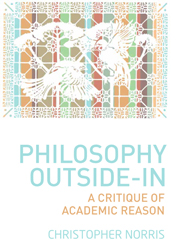Book contents
- Frontmatter
- Contents
- Dedication
- Introduction
- 1 How Not to Defeat Scepticism: Why Anti-realism Won't Do the Trick
- 2 Great Philosophy: Discovery, Invention and the Uses of Error
- 3 Under Which King, Bezonian? Experimental Philosophy versus Thought Experiment
- 4 Outside the Box: On the ‘Extended Mind’ Hypothesis
- 5 Inaesthetics and Transitory Ontology: The Case of Political Song
- 6 Speculative Realism: An Interim Report
- 7 Provoking Philosophy: Shakespeare, Johnson, Wittgenstein, Derrida
- Index
Introduction
Published online by Cambridge University Press: 05 March 2014
- Frontmatter
- Contents
- Dedication
- Introduction
- 1 How Not to Defeat Scepticism: Why Anti-realism Won't Do the Trick
- 2 Great Philosophy: Discovery, Invention and the Uses of Error
- 3 Under Which King, Bezonian? Experimental Philosophy versus Thought Experiment
- 4 Outside the Box: On the ‘Extended Mind’ Hypothesis
- 5 Inaesthetics and Transitory Ontology: The Case of Political Song
- 6 Speculative Realism: An Interim Report
- 7 Provoking Philosophy: Shakespeare, Johnson, Wittgenstein, Derrida
- Index
Summary
I
This book is aimed squarely against the kinds of ultra-specialist interest or ultra-professionalised narrowing of focus that have been such a prominent and – to my mind – such a damaging feature of much recent philosophical work. It seems to have come about largely through the idea that philosophy could best lay claim to academic respectability by pushing as far as possible in its emulation of the physical sciences, or determining to tackle only those well-defined technical problems that were sure to have some likewise well-defined technical answer. Such was Thomas Kuhn's description of how ‘normal science’ typically carried on during those periods of relative calm between great ‘revolutionary’ shake-ups when it was business as normal for most working scientists since any paradigm-threatening obstacle – any discrepant data or empirical anomaly – could always be put down to some observational error, imperfection in the measuring apparatus or questionable choice of auxiliary hypotheses. I don't at all wish to go along with the popular misreading of Kuhn which ignores his stress on the comparative rarity of full-scale scientific revolutions and finds little or nothing of interest in the notion of science as making progress through a placidly constructive engagement with manageable problems. Still I would venture to say that the discourse of present-day academic philosophy, at least in the analytic mainstream, is ‘normal’ to the point of intellectual stagnation and that this has chiefly to do with the effect of an overly specialised professional culture and an over-concentration on issues that lend themselves to quasi-scientific formulation.
- Type
- Chapter
- Information
- Philosophy Outside-InA Critique of Academic Reason, pp. 1 - 32Publisher: Edinburgh University PressPrint publication year: 2013

